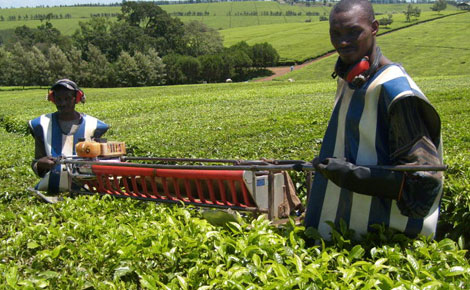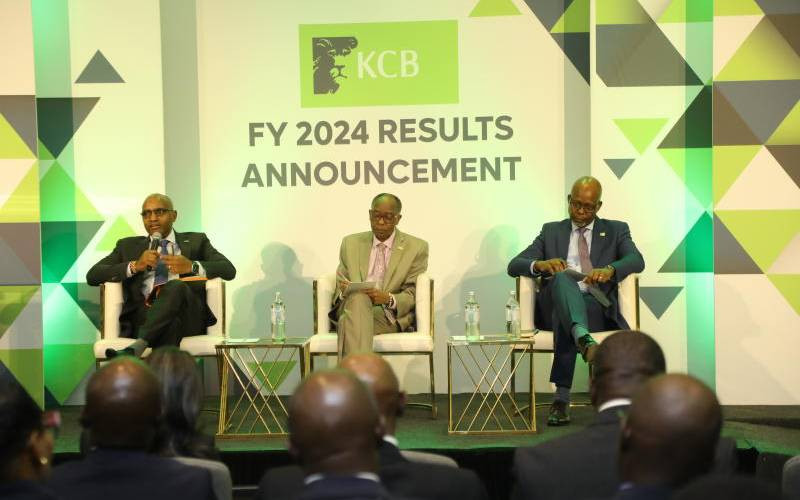Tea sector reels under punitive tax regime, players call for review
News
By
Winsley Masese
| Oct 25, 2014

Kenya’s tea sector, the country’s largest foreign-exchange earner, is reeling from heavy taxation and failure to develop foreign markets, players warn. The East African Tea Trade Association (EATTA) has singled out punitive tax regime as responsible for the dwindling returns, with calls made for urgent reviews to revive the once promising sector.
With more than 40 taxes, levies and charges placed on the tea sector along its value chain, this has bogged down the once robust sector ranked as among the top three foreign-exchange earners. The average auction price of tea has declined 40 per cent this year amid a steep rise in production and stagnant growth in new markets.
Besides eating into the farmers’ returns on their investment, the taxes also make Kenya’s processed tea expensive both locally and in foreign markets. Due to heavy taxation and high production cost, Kenya’s tea is the most expensive at the Mombasa auction compared to the rest of East African nations, including Uganda, Rwanda, Tanzania and Malawi.
During the Senate’s tea crisis conference at a Nairobi hotel recently, members warned that farmers will not realise meaningful return from their investment if action is not taken.
READ MORE
State raises alarm over growing threat of e-waste, urges concerted efforts by all
KCB diversifies MSMEs offering with acquisition of fintech firm
Why every entrepreneur needs an exit strategy and how to create one
The power of values in driving organisational performance
Ecobank gets Sh3.5b capital injection boost
Fire insurance a necessity, not a luxury for business, home owners
EA to get Sh141m for water sector skills development
Kenya in its worst period as debt peaks, warns Mbadi
Stronger shilling, adverse weather sink Kakuzi to Sh130 million loss
The rise and rise of street food culture in Nairobi's estates
According to the East Africa Tea Trade Association data, the 16 per cent value-added tax has cut domestic consumption down to five per cent, while the Ad Valorem levy on tea introduced in March 2012, which is imposed at the point of export or import at 1 per cent of customs value, has made Kenyan tea less competitive.
EATTA says the levy, paid to the Tea Board of Kenya (now the Tea Directorate), has an overall negative impact on the country’s tea sector as it is imposed on Kenyan tea, thereby discriminating against local producers and gives their competitors from the region an upper hand at the auction.
Tea companies are also charged corporate tax at the rate of 30 per cent of the total profit. There is also an import declaration fee of 2.75 per cent of value paid at the point of export, another bane of the sector. The Mombasa-based association also singles out the Sh10,305 per cubic metre duty paid daily on fuel for agricultural operations as having a negative impact on the tea sector. The levy follows another one in 2009, where the government imposed a 0.5 per cent tax on tea destined for Pakistan, Kenya’s largest tea market.
Ad Valorem Levy
The Kenya Tea Growers’ Association says Ad Valorem Levy has resulted in Kenyan tea being discounted directly affecting farmers’ earnings. The association’s CEO Apollo Kiarii, says buyers in the auction now prefer to buy non-Kenya East Africa teas. “With the current hard times, farmers have to squeeze economies. Scale back Tea Directorate budgets and review Ad Valorem Levy urgently,” the association recommends. Kiarii adds that delays on VAT refunds running into billions of shillings have continued to be a challenge to producers. He says this has caused major cashflow problems, with some firms forced to go for expensive commercial loans to fund operations.
The Tea Board of Kenya also charges an annual Sh10,000 registration fees for buyers at the tea auction, tea producers, and tea auction organisers. This has also contributed to the cost of operations of the tea industry. With majority of factories using firewood, county councils charge Sh300 as license for every trip made by a vehicle carrying the fuel. Another levy is the monthly 1 per cent of gross value of green paid to a county council.
Kenya Plant Health Inspectorate Services also levies Sh5,000 per single consignment and Sh10,000 per multiple consignment to one consignee inspected. The body also levies Sh1,000 weekly for the SPS certificate.
Other bodies that get a share of the returns from the tea sector include Kenya Bureau of Standards, National Environmental Management Authority, the Kenya Ports Authority and the Chamber of Commerce.
The Senate national tea conference themed ‘Crisis in the tea sector and the way out’, came out with a number of recommendations on the same. Kisii County Senator Chris Obure, who is also a former Minister for Agriculture called for the immediate removal of Ad Valorem tax. “Besides, there is need to abolish tea cess and remove VAT on the products so as to encourage local consumption,” Obure recommended. Classification of tea as food and not as a beverage, Obure argued, will not attract any tax hence enhance the returns. However, the government defended the tax regime in the tea sector arguing that it applies equally across the board.
National Treasury Cabinet Secretary, Henry Rotich, in a presentation made on his behalf, said that the tax regime does not favour any one group or sector over another and that taxes are not designed to interfere with or influence individual decision-making.
Green leaf
“Tax exemptions must only be for specific purposes - such as to encourage investment - and for a limited period,” noted Rotich. Exempting VAT, Rotich argued, only applies to goods that are unprocessed or services that are basic such as health and education. “In this category, input tax is not allowed to be deducted. Therefore, processed goods are not supposed to be in this category,” he added. However, based on the above principle, the unprocessed green tea is exempt from the VAT under the first schedule of the VAT Act, 2013. The rationale for exempting unprocessed green leaf is due to the fact that no input tax is incurred at this stage. The treatment is similar to all unprocessed goods, the CS noted.
“However, processed tea attracts VAT at the rate of 16 per cent, in line with other processed products such as coffee,” he said. That notwithstanding, the meeting said there is need to harmonise, review and rationalise taxes in the tea sector through review of policies and legal framework as well as constructive engagement between government and stakeholders.

